
Strain displacement in microbiomes via ecological competition
#microbes #ecology #microSky
www.nature.com/articles/s41...
@jaimemurtaza.bsky.social
(Meta)genomics & evolution of human pathogens. Global health in a planet facing a climate emergency. All opinions are mine. Professor of Genetics at the Universitat Autònoma de Barcelona

Strain displacement in microbiomes via ecological competition
#microbes #ecology #microSky
www.nature.com/articles/s41...

Hybridization between previously isolated lineages is main source of diversity within the population.
Hybridisation breaks species barriers in long-term coevolution of a cyanobacterial population.
buff.ly/EaJskBA

New online! From clonality to complexity: a journey through microbial ecology and evolution
30.10.2025 14:28 — 👍 2 🔁 2 💬 0 📌 0
🚨 JUST PUBLISHED 🚨
⚠️ The 2025 @lancetcountdown.bsky.social report reveals climate change inaction is costing lives and livelihoods, and harming the economy.
❤️🩹 Protecting people’s health demands all hands on deck.
Read more: www.lancetcountdown.org/2025-report/ #LancetClimate25

Bacteria undergo rapid genetic changes that are selected by alterations in the human gut environment.
Learn more in a new #SciencePerspective: https://scim.ag/4qaRWNh
please read this thread - even if you don;t get time to read the paper!!!!! just the best - great work, really really great.
25.09.2025 21:48 — 👍 7 🔁 3 💬 1 📌 0
Delighted to announce that The International Meeting on the Biology of Vibrios will be back next year!
Vibrio2026 will be held in Berlin in September 13-16. See you there Vibriologists!
event.fourwaves.com/vibrio2026/p...

"Health losses attributed to anthropogenic climate change," a brief communication in the journal Nature Climate Change. There's a map showing regions of the world, and pie charts of relevant studies as they apply to different health impacts like "heat-related deaths" and "maternal and child health"
🚨 NEW: Climate change is already causing 30,000 deaths per year - a global annual economic loss of $100-350B USD - but the true damage is probably 10x higher. Out TODAY in Nature Climate Change: the first systematic look at the science of "health impact attribution" 🔓 www.nature.com/articles/s41...
17.09.2025 11:57 — 👍 875 🔁 503 💬 22 📌 36Our “Less is more” story is out! 🚀 We reveal how gene loss shaped the adaptive evolution of pandemic Vibrio parahaemolyticus, highlight a potentially general mechanism across bacteria. Huge thanks @danielfalush.bsky.social @campy-bara.bsky.social @jaimemurtaza.bsky.social & all coauthors
27.08.2025 13:06 — 👍 10 🔁 5 💬 0 📌 0
Combination of large-scale phylogenomic analysis, mouse lethality experiments and bacterial growth assays shows sheds light on how a pandemic clone of Vibrio parahaemolyticus was able to spread worldwide
www.nature.com/articles/s41...
Beautiful work on the emergence of the pandemic clone of V. parahaemolyticus
27.08.2025 11:21 — 👍 15 🔁 6 💬 0 📌 0
How to get introgressed fragments in genomic data? Everything you always wanted to know you find in our review in @cp-trendsgenetics.bsky.social, led by Xin Huang:
doi.org/10.1016/j.ti...
Really excited to share the first paper from my PhD - it’s all about assumptions in modelling and the history of early population genetics… 🧵
doi.org/10.1111/ahg....
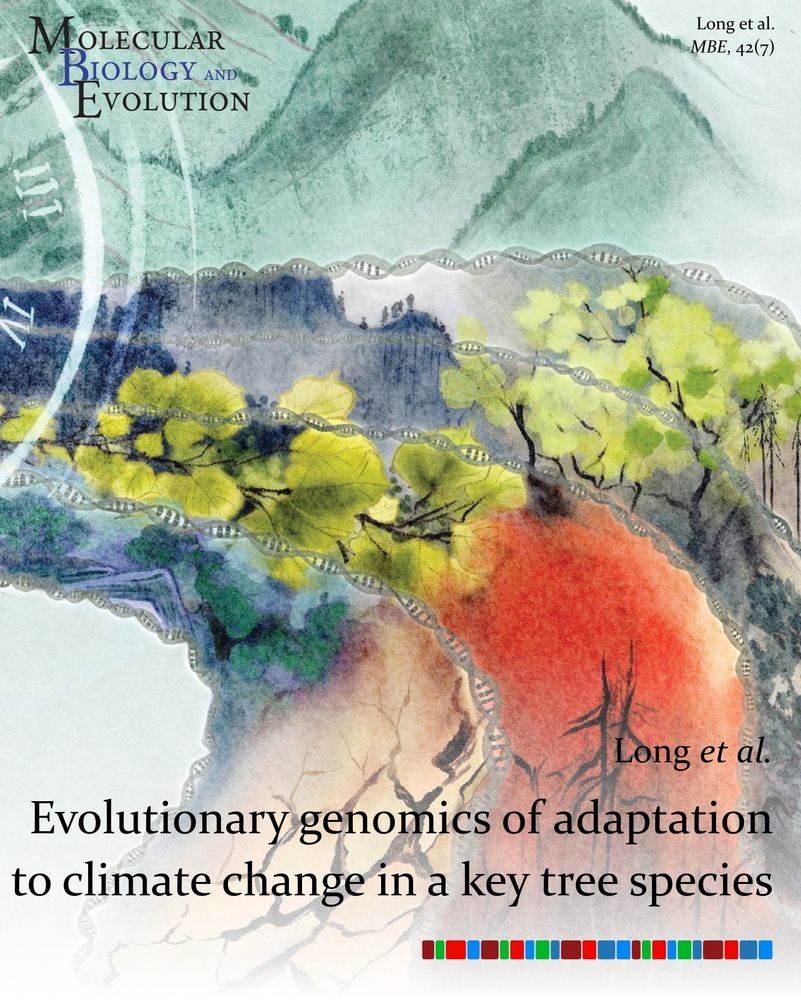
Long et al. integrate population genomics, experimental evolution, and environmental modeling to elucidate the evolutionary responses to climate change in Populus lasiocarpa.
This study has made the July cover of MBE.
🔗 doi.org/10.1093/molbev/msaf116
#evobio #molbio

Happy to share the preprint from here in Shanghai, together with @danielfalush.bsky.social, as well as with team Zhizhou Jia, Huqi Wen, and Zhe Xie!
www.biorxiv.org/content/10.1...

Cleanifier: A fast and lightweight k-mer based tool to remove contamination in microbial sequence data. #MicrobialSequences #ContaminationRemoval #Kmers #Genomics #Bioinformatics @biorxivpreprint
www.biorxiv.org/content/10.1...
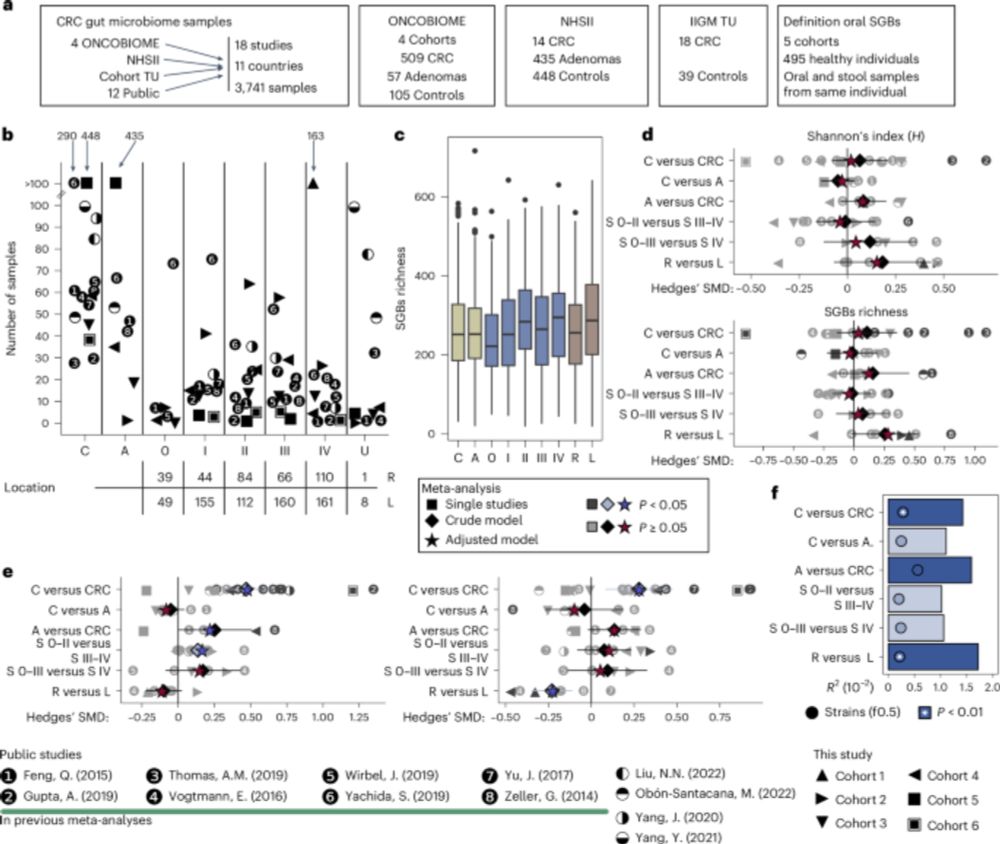
🥁NEW publication from our lab:
the largest meta-analysis of gut microbiome associations with CRC!
www.nature.com/articles/s41...
🧵⬇️
1/6
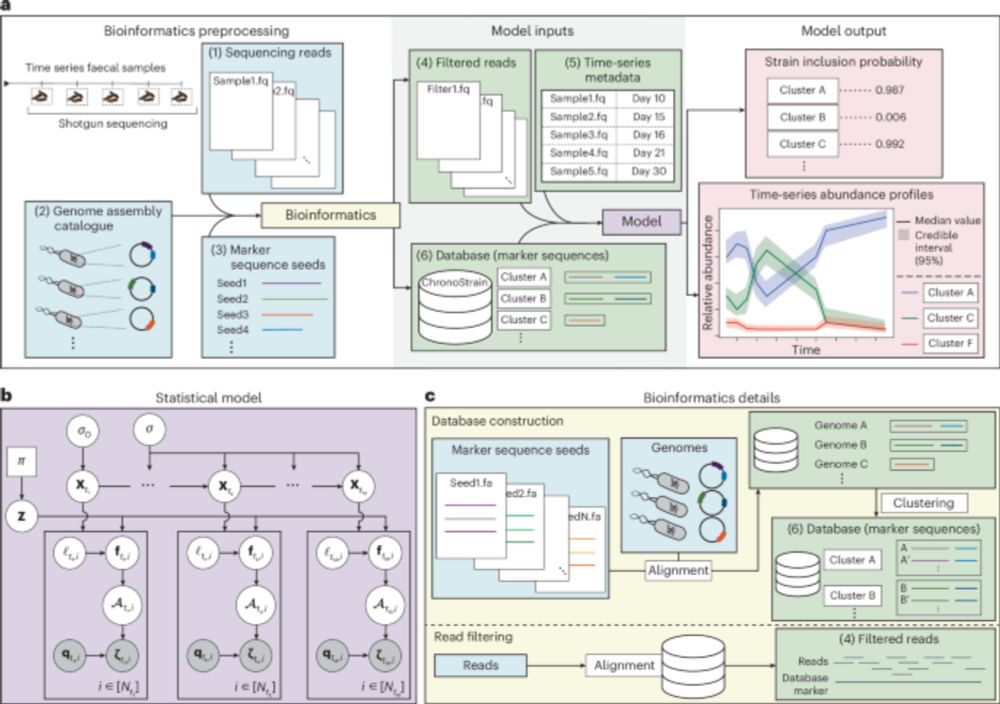
🚨 Out now!
Chronostrain - a method to profile low abundance strains in longitudinal microbiome samples 🦠💻
@travis.gibsonlab.io @younhk.bsky.social @gibsonlab.io @harvardmed.bsky.social @broadinstitute.org
#MicroSky 🦠 #MicrobiomeSky
www.nature.com/articles/s41...

Strain tracking in complex microbiomes using synteny analysis reveals per-species modes of evolution
@natbiotech.nature.com from @microbiome.bsky.social
www.nature.com/articles/s41...
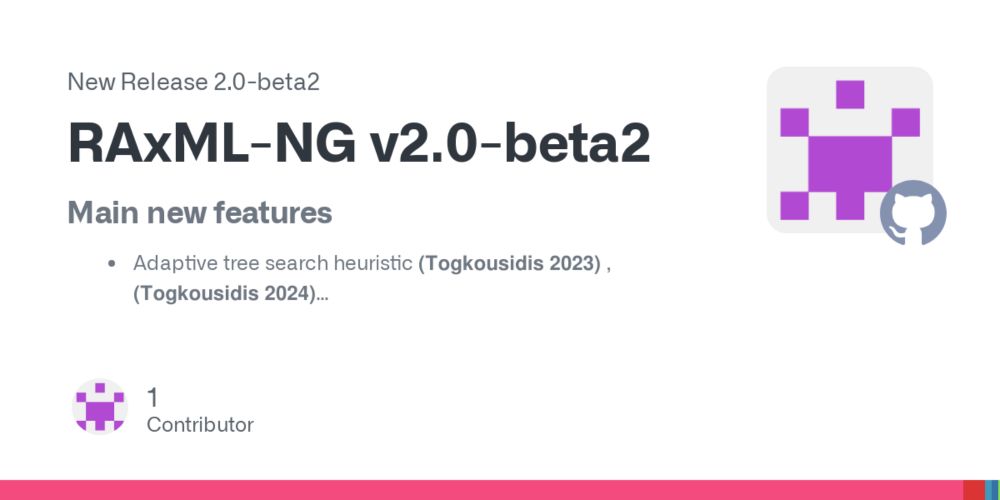
RAxML-NG v2.0 beta is here
github.com/amkozlov/rax...
Features
1. Difficulty prediction
academic.oup.com/mbe/article/...
2. Adaptive search academic.oup.com/mbe/article/...
3. Early Stop
www.biorxiv.org/content/10.1...
4. Model selection
5. Rapid bootstrapping academic.oup.com/mbe/article/...
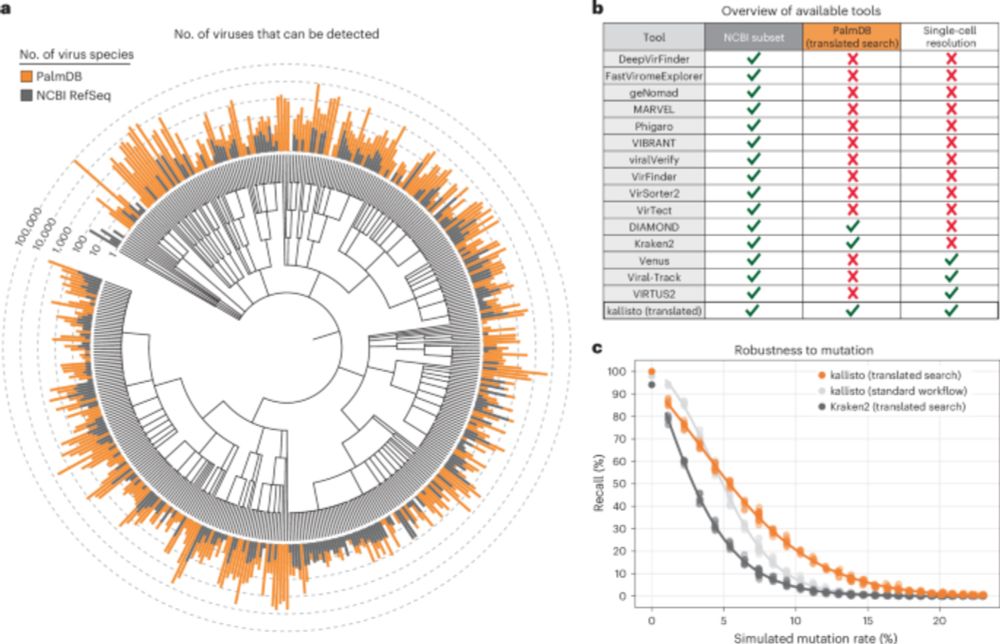
Detection of viral sequences at single-cell resolution identifies novel viruses associated with host gene expression changes - @lauraluebbert.com @lpachter.bsky.social go.nature.com/4lGrSY3
22.04.2025 13:04 — 👍 44 🔁 14 💬 3 📌 1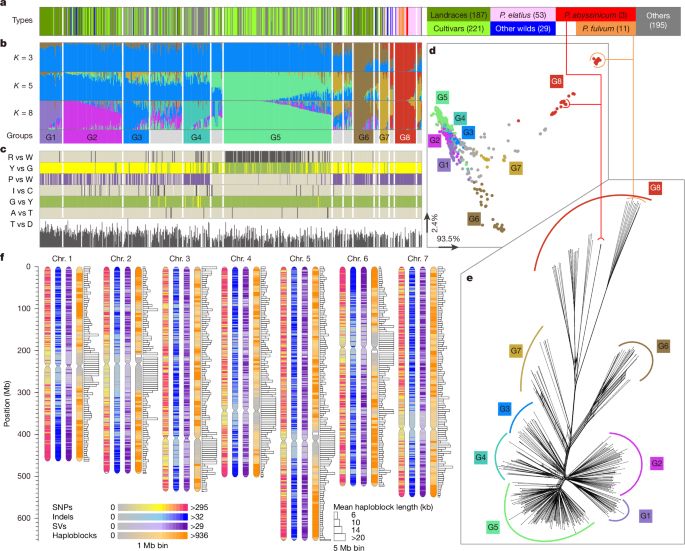
New genomic & genetic insights into Mendel’s pea genes, including previously uncharacterised alleles
159 years after Mendel published his work, this is a real delight (especially for a geneticist)
🧪
@nature.com
www.nature.com/articles/s41...
This new Hifiasm --ont option is amazing. It worked like a charm for us in the nanopore adaptive sampling based assembly paradigm we introduced in a preprint recently.
www.biorxiv.org/content/10.1...
Our rising seas. This is only going to get harder to ignore.
This NASA visualization was created by svs.gsfc.nasa.gov/5520/

Ocean heat content (OHC) in 2024
Global full-depth OHC gain since 1960 reached a record 452 ± 77 zetajoules (ZJ) in 2024. OHC was 15 ± 9 ZJ higher than in 2023, primarily associated with warming in the Atlantic and Indian Oceans
1 ZJ = 1,000,000,000,000,000,000,000 J
www.nature.com/articles/s43...

Experiments in bacteria test the 50-year-old Ohno’s hypothesis that having duplicates of a gene (true for about 50% of them) allows evolution to accelerate. #EvoBio #Evolution
10.04.2025 15:12 — 👍 10 🔁 2 💬 0 📌 0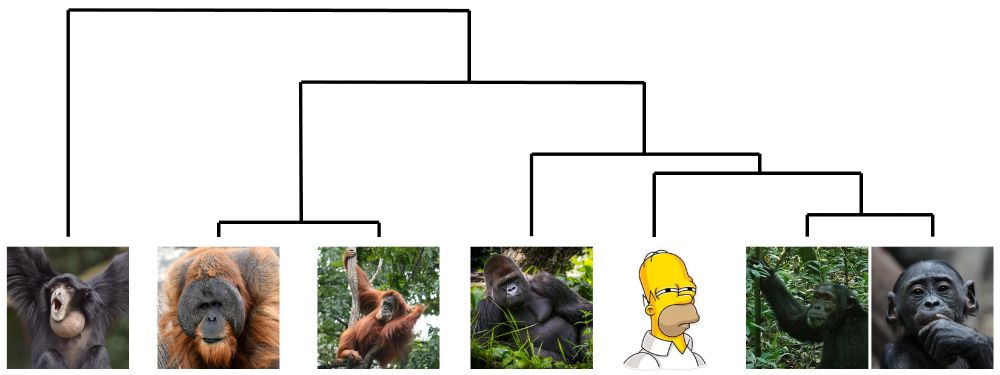
A phylogeny of the 7 ape genomes that have now been completed from "T2T", with Homer Simpson representing mankind.
A project five years in the making, we've now published complete "T2T" genomes for six additional ape species! It turns out that finishing (and analyzing) six genomes is slightly more work than one... doi.org/10.1038/s415...
09.04.2025 21:31 — 👍 156 🔁 77 💬 5 📌 3So glad this is finally out. The method has been instrumental in allowing us to compress the AllTheBacteria data - ~2 million bacterial genomes shrink from 3Terabytes (gzipped) to 100Gb using phylogenetic compression. Great work by @brinda.eu
09.04.2025 22:27 — 👍 126 🔁 51 💬 4 📌 1It's finally out!!!! Our review on long-reads transcriptomics was published in @natrevgenet.bsky.social!! You can have a look at the paper here rdcu.be/efugl! We hope you like it 😀
28.03.2025 11:25 — 👍 27 🔁 10 💬 2 📌 0
Anthropogenic activity and climate change exacerbate the spread of pathogenic bacteria in the environment | Science Advances www.science.org/doi/10.1126/...
28.03.2025 06:49 — 👍 2 🔁 0 💬 0 📌 0